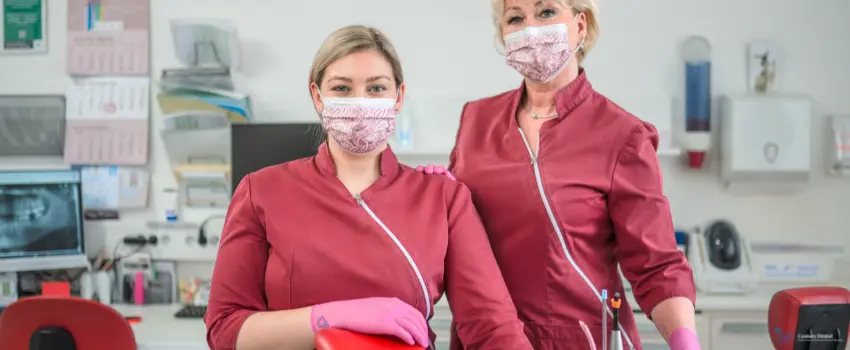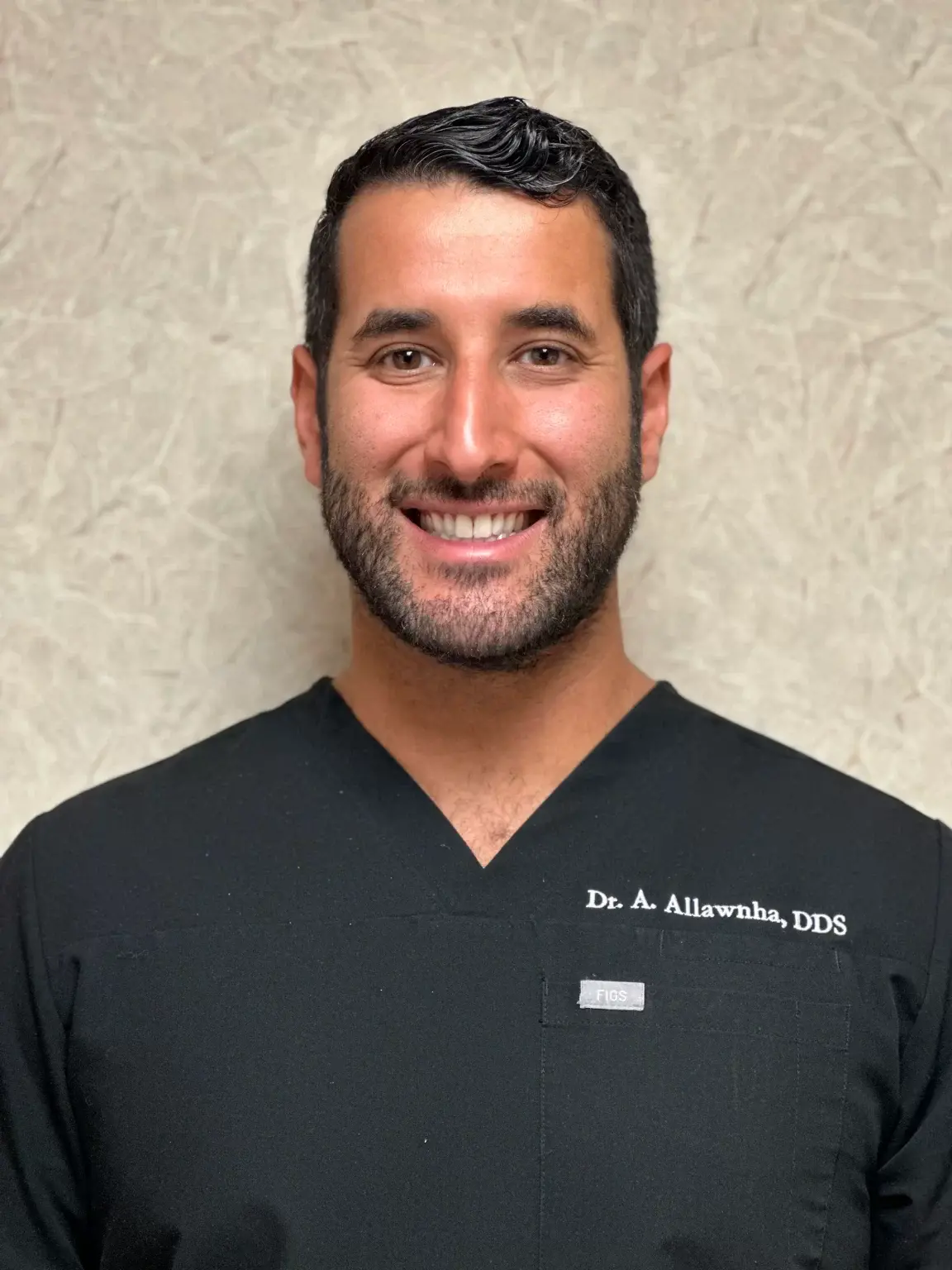Dr. C. Edmund Kells is a pioneer in many aspects of dental care. Often called the “father of dental radiography” and an expert in dental abscess treatment, he was also the first to employ assistants that made dental care more manageable for dentists and, more importantly, accessible to women.
Dr. Kells first incorporated his wife into his practice, who assisted him by mixing materials and cleaning up after procedures. When his practice grew, he soon hired Malvina Cueria, who eventually became known as the first dental assistant in modern history. Despite being a teenager when she began her career, Malvina’s presence enabled women to undergo dental treatment without needing chaperones with them.
Today, dental assistants are one of the most important members of the dental team. As we celebrate Dental Assistants Recognition Week this March, let’s learn more about dental assistants and how important they are to the dental practice.
What is a dental assistant?
A dental assistant in today’s context is a professional who works alongside a dentist to help examine and treat patients. They must complete dental assistant training and certifications and have a range of technical, professional, and interpersonal skills.
There are two levels of dental assisting. Level 1 dental assistants are limited to “extra-oral” dental assistant duties, such as preparing patients, and recording patient information. Once they earn more knowledge and experience, they become level 2 dental assistants who can perform “intra-oral” duties such as polishing teeth, applying fluoride, and other dental procedures.
Dental Assistants: Their Role in Oral Health Care
Dental assistants undertake multiple roles in the dental clinic, making them an integral part of any dental team. Here are some dental assistant duties and responsibilities that make them an integral part of the dental team:
They comfort and listen to patients.
Providing patient care is one of a dental assistant’s top priorities. Some patients may experience nervousness or discomfort when visiting the dental office, and dental assistants can help alleviate their anxiety. By warmly welcoming patients, dental assistants help create a positive and comfortable environment for them to receive the treatment they need.
Dental assistants also engage in conversations with patients, answering their questions, educating them on treatment options, and providing reassurance throughout their appointment.
Listening to patients is one of the most important roles dental assistants have. Patients often have fears and concerns, and having someone listen and talk to them often helps them get through their treatment.
They educate patients.
Educating patients about various dental care aspects such as upcoming appointments, treatments, and post-procedure care is a crucial dental assistant role. They also educate patients on general oral hygiene and keep their records updated. Since they spend a significant amount of time with patients, dental assistants are in a perfect position to provide valuable education and answer any questions or concerns a patient may have about their dental health.
They keep things running smoothly.
A dental assistant is also a practice’s air-traffic controller who keeps dental offices running smoothly. They maintain the schedule and ensure appointments are on track by making sure patients are seen on time or rescheduled when necessary and supporting dentists to stay on schedule and move on to the next patient.
According to a study by the Dental Advancement through Learning and Education (DALE) Foundation, 97% of dentists and dental office managers agreed that dental assistants allow dentists to move on to the next patient quickly. They are skilled multi-taskers and organized professionals, capable of managing and juggling every detail of the schedule.
They are a dentist’s extra set of eyes, ears, and hands.
Dental assistants are an invaluable asset to dental practices because they also serve as an additional set of eyes, ears, and hands during procedures. They are often referred to as mind readers because of their keen observation skills and their ability to anticipate the dentist’s and patient’s needs, ensuring appointments go smoothly and efficiently. It also allows them to pick up on a patient’s emotions and provide comfort when necessary.
They support the whole team.
The dental team must work together to ensure optimal efficiency in the practice. Most dentists and dental office managers agree that effective dental assistants contribute to team synergy which makes team members more efficient. They also agree that being a team player is one of the top ten qualities a dental assistant should have.
A strong bond between dental team members enables seamless operation and projects a positive and professional image for the dental practice. Successful teammates pitch in to help one another, especially during stressful days. Supporting each other leads to everyone’s success, including the dentist, the dental team, and the patients.
They perform infection control duties.
Performing infection control duties, such as sterilization and disinfection, is one of the most critical responsibilities of a dental assistant. They need to adhere to federal infection prevention and control guidelines and regulations. Given that busy dental offices see many patients each year, maintaining proper infection prevention and control measures is crucial.
They manage administrative tasks.
Aside from keeping things running smoothly in the clinic, dental assistants perform various administrative tasks like answering phones, updating patient records, assisting with billing and insurance claims, and providing other practice and patient services.
Dental assistants also manage the clinic’s inventory and purchasing of products, tools, materials, equipment, and consumables. This gives them a considerable level of purchasing power within the dental industry.
A Day in the Life of A Dental Assistant
A dental assistant’s daily routine can vary depending on the clinic’s needs. Usually, they start the day by sterilizing and disinfecting medical instruments, preparing the examination rooms and dental equipment for patients, and setting up instrument trays for the dentists.
Once patients start trickling in, dental assistants record their information or update their dental records. During procedures, dental assistants may assist the dentist by handing over instruments or providing general support as needed.
Key Takeaway
A dental assistant is a skilled professional who works with dentists to provide the best care for patients. They use their technical, professional, and interpersonal skills to perform their tasks like caring for and educating patients, keeping the clinic running smoothly, performing infection control duties, and supporting the entire dental team.
Dental assistants are essential to the dental team and ensure a dental practice’s success.
Your oral health is in safe hands.
Here at Century Dental, our St. Pete Beach dentist works with the dental team to give patients the best dental care they deserve, such as implant dentistry and preventive dental services.
Take a more active role in your oral health. Call Century Dental today.








